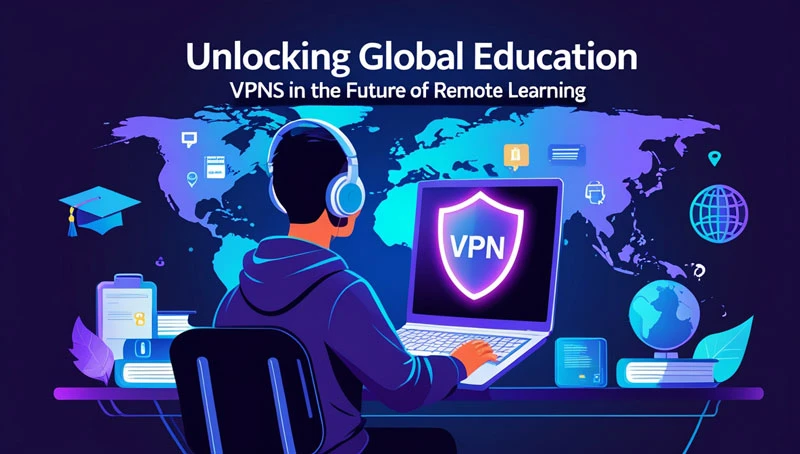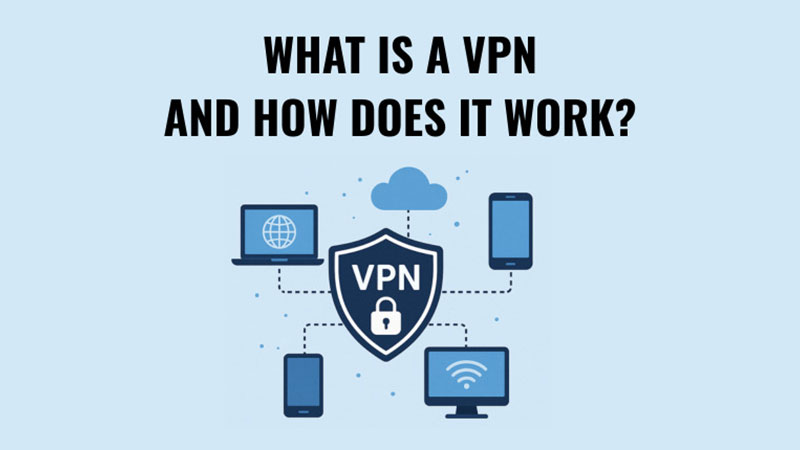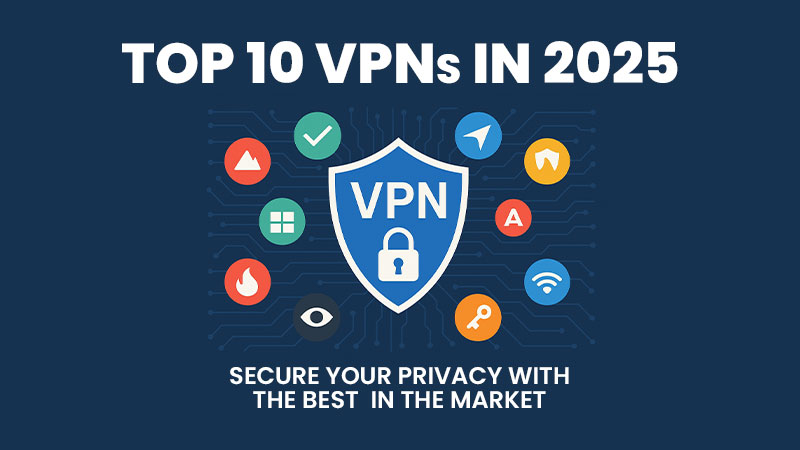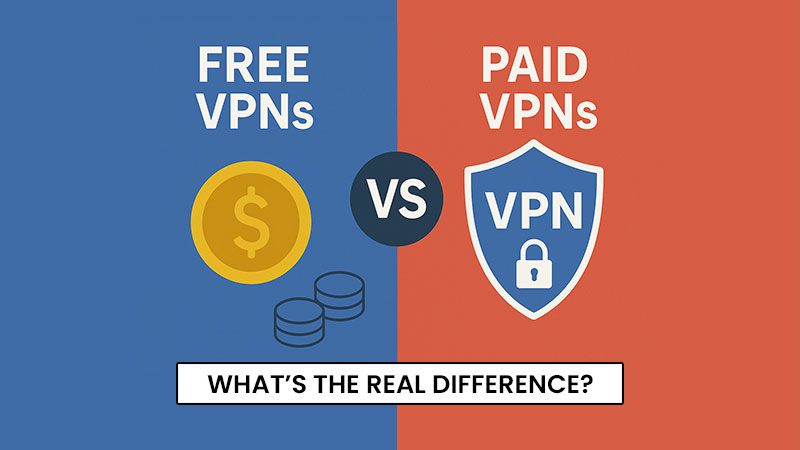Remote learning is more than a convenience—it’s a necessity in today’s connected world. As VPN for Education becomes increasingly relevant, remote learning is evolving to overcome digital boundaries and reach students everywhere. Virtual Private Networks (VPNs) are emerging as essential tools in unlocking global education access. Whether you’re a student in a restricted region or an educator sharing knowledge across borders, VPNs are shaping the future of online learning. With the increasing demand for VPN for education, more students are relying on these services to overcome digital barriers, access blocked websites, and ensure secure and uninterrupted learning experiences. The best VPN for students doesn’t just provide access—it offers privacy, protection, and performance at an affordable price. By using a reliable and affordable VPN, students and educators alike can take full advantage of global digital resources, making online learning more inclusive and equitable than ever before.
What Is a VPN and Why It Matters in Education
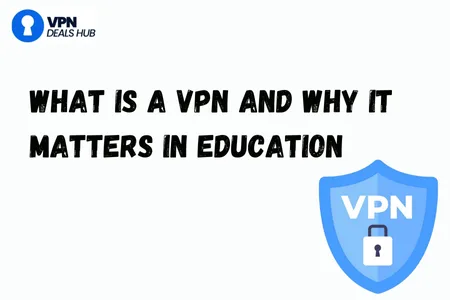
A VPN (Virtual Private Network) is a protective technology that creates a secure, encrypted link between your device and the internet. This tunnel ensures your data remains private and your identity stays hidden, which is especially vital in educational settings where sensitive information like grades, assignments, and personal details is constantly transmitted online. As online learning expands at a fast pace, maintaining its security has never been more important.
For students, educators, and institutions, a VPN for education provides a significantly advantage. Not only does it secure connections across public or unsecured Wi-Fi networks, but it also allows users to unblock educational content that may be restricted based on geography. Many schools and countries place limits on access to platforms like YouTube EDU, Coursera, Khan Academy, or Google Scholar, which are important for a well-rounded academic experience.
Moreover, using the best VPN for students helps eliminate access disparities and provides equal learning opportunities, especially in countries where censorship is a concern. This means students can explore diverse curricula, connect with international educators, and participate in online forums without fear of surveillance or content filtering. For schools adopting remote learning tools, implementing a VPN ensures that every student—regardless of location—has the same access to resources.
In addition, VPNs support hybrid learning tools by allowing secure remote access to institutional servers, enabling seamless transitions between physical classrooms and digital environments. When paired with an affordable VPN, schools and universities can scale remote learning initiatives effectively while maintaining high standards of security, accessibility, and inclusivity.
It’s no wonder that finding the best VPN for educational use has become a top priority for institutions aiming to deliver uninterrupted and secure online learning.

- 9.8
- The fastest and most reliable VPN on the market

- 9.5
- Low-cost VPN offering unrestricted device usage

- 8.2
- Affordable new VPN launched by top industry professionals
How VPN for Education Is Transforming Remote Learning Access
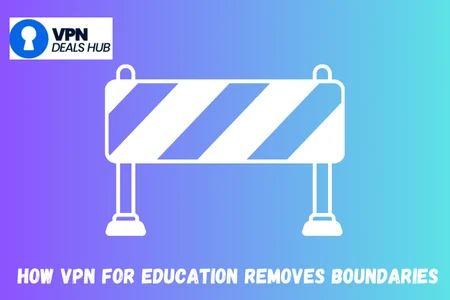
As online education platforms grow and evolve, they bring with them a host of challenges—ranging from content censorship and regional restrictions to cybersecurity risks and bandwidth limitations. This is where VPNs, or Virtual Private Networks, step in as powerful enablers of accessible and inclusive learning. VPNs are not just protective tools—they’re gateways to a more connected and equitable educational experience.
By using the best VPN for students, learners can sidestep digital firewalls that block access to vital educational resources, ensuring that no matter where they are in the world, knowledge is never out of reach. For instance, students in regions with strict internet regulations can use a VPN for education to join online classes, attend global seminars, and participate in cross-cultural academic discussions. This creates a truly borderless classroom.
Furthermore, VPNs significantly enhance online learning security, which is vital as students increasingly rely on digital platforms for assessments, assignments, and communications. With encrypted connections, personal and academic data is protected from cyberattacks, phishing attempts, and identity theft—issues that are all too common in remote learning setups.
VPNs also improve the user experience by optimizing connectivity. Some of the best VPNs are known for helping users bypass ISP throttling, which can be especially beneficial during live streaming sessions, online labs, or virtual group projects. This results in more reliable and smoother access to remote learning tools and platforms.
Finally, VPNs help bridge the digital divide by making it easier to implement hybrid learning tools that connect on-campus and remote learners seamlessly. Schools and universities that invest in affordable VPN solutions empower students from diverse backgrounds to engage fully in their education, regardless of local infrastructure or policy barriers.
VPNs solve many of these issues by:
- Enabling Cross-Border Learning: Students in countries with limited digital freedoms can access global curriculums, enroll in MOOCs, and participate in webinars otherwise unavailable in their regions.
- Protecting Student Privacy: With rising cyber threats, especially during online classes, VPNs offer end-to-end encryption, ensuring safe virtual environments.
- Improving Connection Stability: Premium VPNs can even help optimize bandwidth routes, reducing lag during live sessions.
- Unblock Educational Content: VPNs help bypass geographic restrictions to access educational platforms that might be blocked in certain regions.
Case Studies – VPNs Making a Difference
- Iran & China: Students often rely on VPNs to access platforms like Zoom, Google Meet, or Canvas, which are blocked or restricted.
- Ukraine: Amid conflicts, VPNs have enabled students to continue their education from shelters, maintaining a connection with international schools and universities.
- Rural India: VPNs help educators connect to LMS (Learning Management Systems) and distribute content without interruption from network censorship.
VPNs and the Future of Hybrid Learning
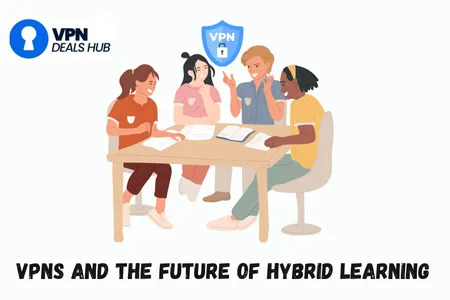
The future of education is hybrid a blend of in-person and online experiences that together create a flexible, adaptive, and global learning model. As institutions increasingly adopt this shift, ensuring secure and uninterrupted access becomes more critical than ever. This is where VPNs step in as indispensable tools, offering a robust foundation for hybrid learning tools that work across diverse geographies and digital ecosystems.
With the advent of technologies such as AI-driven tutors, virtual reality classrooms, and immersive metaverse learning spaces, students and teachers are increasingly operating in a multi-platform environment. VPNs ensure consistent access to these innovations by allowing users to bypass geo-restrictions, maintain online learning security, and connect to global educational tools without lag or disruption.
For students who alternate between campus and home environments, a VPN for education guarantees that institutional resources such as learning management systems (LMS), digital libraries, and academic portals remain accessible regardless of their physical location. This continuity is important for collaborative projects, exams, and real-time interactions in a hybrid model.
Moreover, educational institutions implementing affordable VPN solutions are better equipped to serve remote learners in underserved regions. This democratizes access to education and ensures that technological advancements in hybrid learning are not limited to urban or well-funded schools. Using the best VPN for students means improved access, safer data sharing, and reduced friction between physical and digital educational spaces.
In short, VPNs are not just add-ons to the hybrid classroom they are enablers of a more resilient, secure, and globally connected educational system.
Choosing the Best VPN for Remote Learning
When selecting the best VPN for students and educators, it’s important to evaluate several critical features that directly impact the remote learning experience. A well-chosen VPN not only facilitates global education access but also enhances online learning security, making it a worthwhile investment for long-term academic success.
Here are key factors to consider:
- Speed and Reliability: A fast and consistent connection is important for streaming lectures, participating in live classes, and downloading course materials without interruptions.
- Global Server Coverage: Choose a VPN with a wide network of servers to ensure smooth access to regional content and unblock educational content worldwide.
- No-Logs Policy: This guarantees that your browsing activity and data remain private, reinforcing security in digital learning environments.
- Compatibility with Learning Platforms: Ensure the VPN works well with platforms such as Zoom, Google Classroom, Canvas, and Coursera.
- Student-Friendly and Affordable VPN Pricing: Many providers offer educational discounts or student plans, making powerful VPNs more accessible for budget-conscious users.
Top-rated providers like NordVPN, ExpressVPN, Surfshark, and ProtonVPN have earned a reputation for delivering robust performance and privacy features. These options are considered some of the best VPNs for remote learning, offering tools that integrate seamlessly with remote learning tools and hybrid learning tools alike.
By choosing the right VPN, students and educators can safeguard their learning environments, bypass unnecessary digital barriers, and make the most of their educational journey—no matter where they are in the world.
How VPN for Education Removes Boundaries
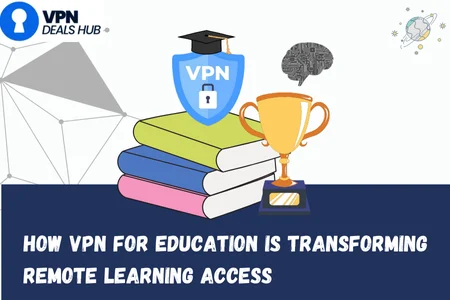
VPN for Education is transforming how students access knowledge worldwide. By bypassing geographic restrictions, VPNs enable learners to reach blocked educational content, collaborate globally, and engage with high-quality resources. More than just access, VPNs provide essential security, protecting academic data in remote and hybrid learning environments. As online education grows, a reliable and affordable VPN ensures privacy, performance, and inclusion for all. Whether accessing international courses or safeguarding digital identity, VPNs help create a borderless, secure learning experience. For today’s students, VPN for Education is not just a tool—it’s a gateway to limitless opportunities.
Frequently Asked Questions (FAQs)
Is it legal to use a VPN for education?
Yes, in most countries, using a VPN is legal. However, some nations may restrict VPN usage. Always check your local laws before using one.
Can VPNs improve my internet speed for online classes?
NO, While VPNs can’t increase your base internet speed, they can help avoid ISP throttling, which may improve streaming and download performance for educational platforms.
Are free VPNs safe for students?
No, Using a free VPN can lead to slower speeds, restricted server options, and potential security risks. For online learning security, it’s recommended to use a reputable and affordable VPN with no-logs policies.
Will a VPN work on school Wi-Fi?
Yes, a VPN can work on school Wi-Fi and can help bypass network restrictions that block access to certain educational or communication platforms.
Which VPN is best for students?
Top-rated options include NordVPN, ExpressVPN, Surfshark, and ProtonVPN. These services offer a balance of speed, security, and affordability tailored for educational use.

